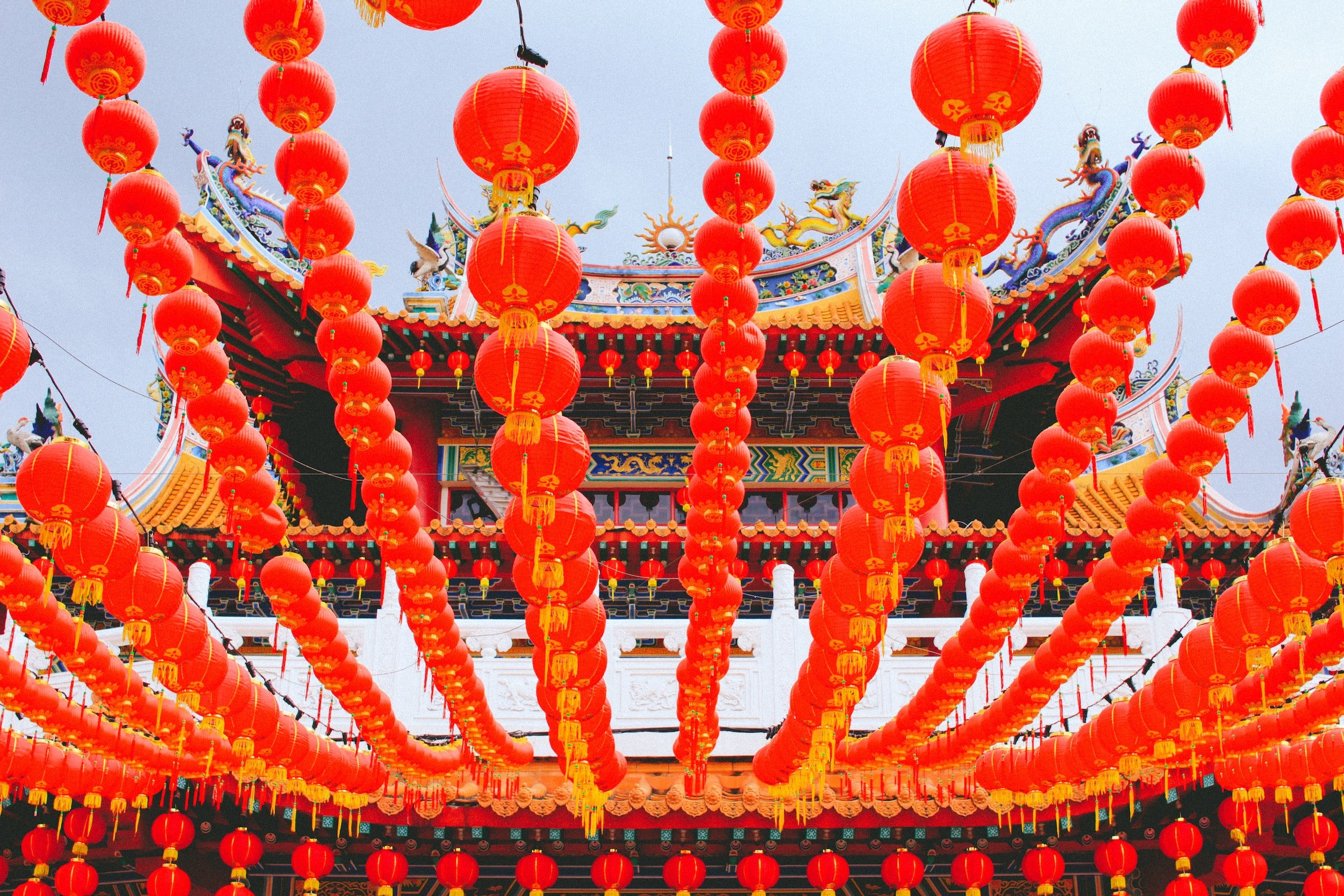
Editor’s note: China Partnership recently interviewed Hannah Nation, co-editor of the Faithful Disobedience, a collection of writings on church and state from the Chinese house church movement. The book is composed primarily of writings from Wang Yi, a prolific pastor and thinker who is currently imprisoned. In this interview, Nation shares about how the book came to be, what it includes, and how working on this book has helped her weather the storms of recent years and shaped her understanding of our times.
This is the first of a two-part series; the interview has been edited and condensed for clarity and length.
China Partnership: Tell me about Faithful Disobedience.
Hannah Nation: It’s a collection of writings from Pastor Wang Yi and several others. Wang Yi can be controversial, and not everyone in the house churches agrees with him on everything. The other voices help give understanding of the ways Wang Yi is not a lone voice. He is in agreement with other prominent pastors on what the house church is, its history, and why it matters that the house church does not enter the Three-Self church.
The book has three sections. The first is called “Our House Church Manifesto,” and was compiled by Wang Yi himself and self-published by Early Rain [his church]. It is not just a manifesto of Wang Yi’s writings, but includes essays from prominent Beijing pastors. Several years ago, someone affiliated with Wang Yi contacted me and told me he wanted this to be shared widely, including with churches outside of China. I didn’t really know what to do with it. After his arrest we started talking with publishers, but there wasn’t a lot of interest. But at the beginning of 2020, IVP got involved. At that point, so much translation had been done of other material from Wang Yi that it didn’t make sense to publish just the original manifesto.
Never miss a story
As for how the book actually flows, the first third is in the vein of the legal tradition he comes from and his thinking as a legal scholar. But in the years before his arrest, his thought and writing evolved, and it was important to demonstrate that. You can’t read the first third without reading the next two, or you won’t understand where he is coming from.
The second section is called “The Eschatological Church.” It goes into Wang Yi’s eschatology, his understanding of the redemptive narrative over time, and how the church participates in that. The last third of the book, “Arrest and the Way of the Cross,” is what he wrote directly before his arrest, or is related to [his arrest]. It is focused on the role of suffering in the Christian life, and his thoughts on what we are called to when we are called to walk with Christ.
>
”“The Christian’s call to walk with Christ involves a call to suffer with Christ, and we can expect that in our lives.”
CP: Faith in the Wilderness, the previous book you worked on, was more devotional. This book is more academic and more focused on the big picture of society. How did those differences impact you?
Nation: I’m probably not too different from most Americans. From sometime in mid-2015, to the 2016 election, and all the way through fairly recently with the subsiding of a lot of the drama of Covid, I look back on a period of turmoil. Both culturally and socially, we have felt burdened and thrown through the wringer. Personally, my family went through a lot of difficulties. For us, from 2018 through the beginning of 2022, we were in our own personal wilderness for many different reasons.
I don’t say this lightly: apart from Scripture and the ministry of the Word, working on and marinating on the content of these books probably saved my faith through the challenges I faced personally, and that I struggled through with all of America. The books are different, but the through-line is the same: the Christian’s call to walk with Christ involves a call to suffer with Christ, and we can expect that in our lives.
I’m sure, somewhere, I have encountered Western theologies that say the same. But it is not a common conversation. I don’t come from a prosperity gospel background; I come from the Reformed tradition, which loves to talk about the sin and brokenness of this world. But the way these Chinese guys are talking about it is a fresh take from what I ever received. It challenges my American assumptions and expectations for life. It was helpful to not just be engaging abstract theology, but also to watch their living testimony as my brothers and sisters count the cost with joy and faithful perseverance. They daily remind me of this aspect of discipleship and following in Christ’s footsteps.
It is hard for me to call Wang Yi’s book strictly academic, partly because he is such a good writer. You cannot engage his theology without being impressed by the bigness of God, of the redemptive narrative, and of what we are participating in.
Although Faith in the Wilderness is smaller in scope, it has the same effect of communicating the bigness of the gospel. The things they are thinking about are universe-encompassing. Working on these projects, my eyes were constantly lifted to God’s goodness. Over the last five years, as we have gone through discouraging times, these projects have impacted my faith and my walk with the Lord to help me have a sense that God is doing something big in our world.
CP: Wang Yi is in jail. How do you shepherd the words and thoughts of someone who is still living, but completely inaccessible?
Nation: That has been the most difficult aspect of the whole project. There were times I felt paralyzed and afraid, not knowing how to move forward. Even with a dead person, as a scholar you try to be very careful with their legacy and with accurately representing them. Because he was alive, it was very hard at times to know how to do the project.
>
”“Working on these projects, my eyes were constantly lifted to God’s goodness. Over the last five years, as we have gone through discouraging times, these projects have impacted my faith and my walk with the Lord to help me have a sense that God is doing something big in our world.”
It was good and important that I don’t personally know Wang Yi. I have met him once, very briefly, when I was involved in recording a video of him. Having that distance was important for the integrity of the work, so it is a more scholarly treatment of his work and ideas. Also, emotionally, if I was personal friends with him I do not think the project would have been doable. The years since his arrest have been very hard for people who do know him personally. It is very hard for them to think about his situation. It was helpful that I was able to consult with many people who know him, or were affiliated with his ministry. I was able to run everything we did by people who gave me good feedback on the soundness of what I wrote.
J.D. Tseng, who worked on the book with me, does know Wang Yi personally. It was a good balance, because he was able to give good insight.
CP: In a post-Covid world, the international political relationship between America and China is different than it was five years ago, and much different than it was ten years ago. Tensions are higher than they’ve probably been since the 1970s, but in many ways we are closer to China than we were at that time. In what ways did global realities shape the way this book is sent out into the world?
Nation: It’s hard to answer, in part because the book had such a long birthing process. I wrote the introduction in early 2020. I look back and see a certain optimism in it. If I sat down to write the introduction today, I would probably say the same things, but it would have a darker overtone.
So much has changed so quickly since January of 2020. 2022 showed we are in a new age. We are not going back. Covid wasn’t a blip; it was a paradigm shift. All the material in the book pre-dates Covid, and Wang Yi went to jail in 2018. I don’t know what Wang Yi would have thought through Covid, or what his way of engaging would have been. But there is a timelessness to what he is talking about that is not bound to the realities of pre-Covid China. If anything, what he has to say is only more applicable given where we are today.
>
”“I don’t know what Wang Yi would have thought through Covid, or what his way of engaging would have been. But there is a timelessness to what he is talking about that is not bound to the realities of pre-Covid China. If anything, what he has to say is only more applicable given where we are today.”
The main thing I am turning an eye to in the coming year is: how do we help Chinese house churches speak to other contexts of persecution? The fall of Afghanistan, the rise and return of the Taliban, everything in Ukraine – those were realities no one anticipated in 2018 when Wang Yi went to jail.
Western churches have no living memory in our churches of what it means to withstand persecution. But Wang Yi and Early Rain know full well what it means to endure under extreme duress. There is a need to facilitate conversations from the persecuted church, to the persecuted church. It’s not that we remove the North American church from the equation, but we can step back and say, “What do we have to say to churches in this context?” We can point to Scripture, but we can’t point to our actual realities and theologies on these things.
Hannah Nation is the Managing Director of the Center for House Church Theology. A prolific writer and student of missions history and World Christianity, she is inspired by this historical moment and the privilege of witnessing a new chapter in church history unfold across China.
FOR PRAYER AND REFLECTION
Pray for Wang Yi and his family as he currently remains in jail.


































